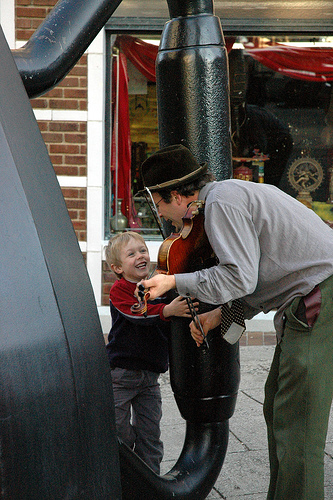From the Onion:
Scientists from the Evangelical Center For Faith-Based Reasoning are now asserting that the long-held “theory of gravity” is flawed, and they have responded to it with a new theory of Intelligent Falling. […]
According to the ECFR paper published simultaneously this week in the International Journal Of Science and the adolescent magazine God’s Word For Teens!, there are many phenomena that cannot be explained by secular gravity alone, including such mysteries as how angels fly, how Jesus ascended into Heaven, and how Satan fell when cast out of Paradise. (Onion)
As with most stuff from the Onion, it’s worth a read…




